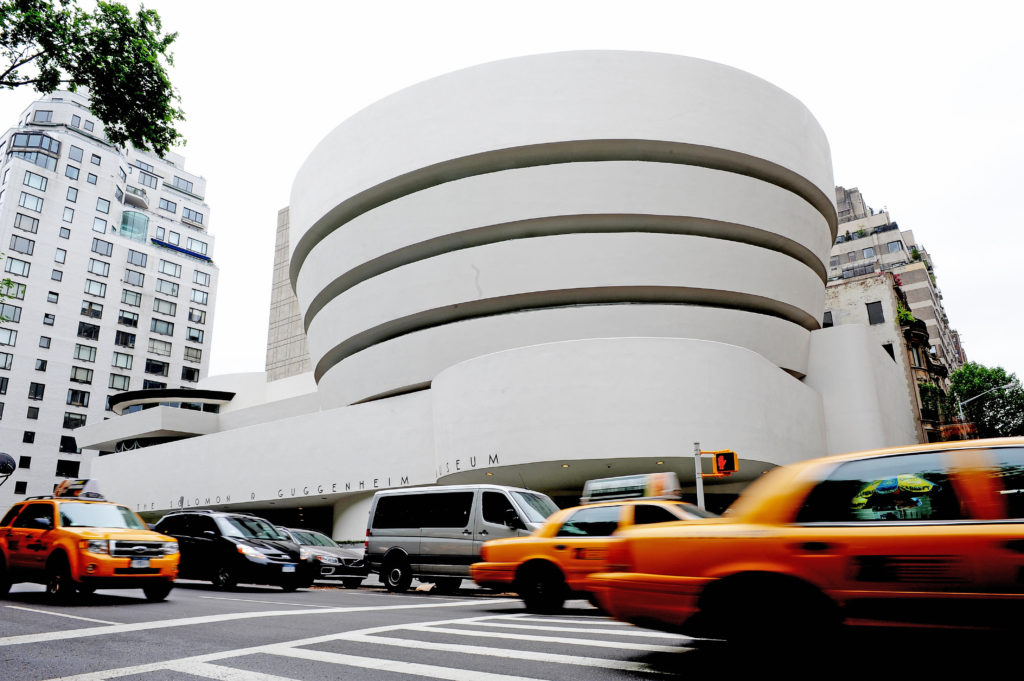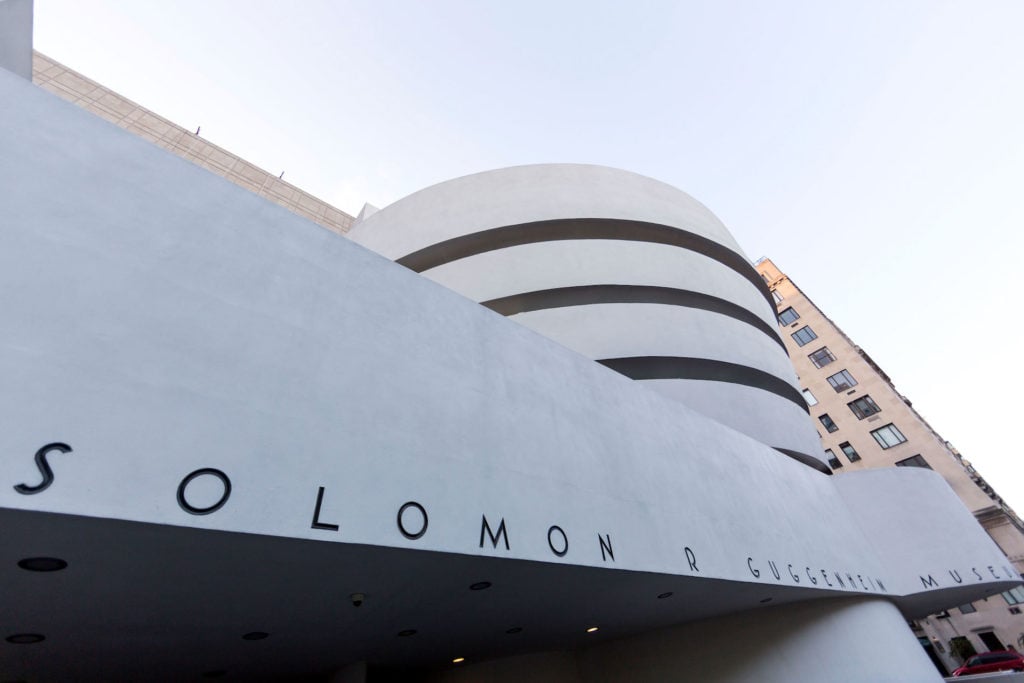A letter sent to Guggenheim Museum leadership on Monday from members of its curatorial department demanded action to confront what they called an “inequitable work environment that enables racism, white supremacy, and other discriminatory practices.”
The letter was addressed to director Richard Armstrong, deputy director and general counsel Sarah Austrian, chief operating officer Elizabeth Duggal, and chief curator and artistic director Nancy Spector.
It is signed only by “The Curatorial Department” but says elsewhere in the letter that it was written by 22 members of its 23-person curatorial team.
“The museum’s present inability to take full responsibility for its history or respond adequately—whether through statements or programming—to the global protests triggered by the murder of George Floyd, has put into glaring relief the need for the self-examination and growth required to move forward as an anti-racist institution,” the letter reads.

The Guggenheim Museum in New York. Photo credit: STAN HONDA/AFP/Getty Images.
Spector, the only member of the curatorial department who did not participate in the letter’s creation, is taking a three-month sabbatical, the news of which was shared with staff on Monday, around the same time as the New York Times reported on the letter.
“Our curators, and all members of our staff, are essential to the Guggenheim,” Armstrong said in a statement to Artnet News. “In this period of self-reflection and reckoning, we will engage in dialogue with our staff and review all processes and procedures to lead to positive change. We are expediting our ongoing DEAI efforts to produce an action plan for demonstrable progress, as we work toward becoming a more equitable, diverse and welcoming Guggenheim.”
The document was conceived in the wake of a series of optional roundtable discussions hosted on June 8 by the Guggenheim’s human resources department as part of an effort to talk about the institution’s diversity, equity, accessibility, and inclusion practices in the wake of Floyd’s murder.
Disappointed by the shortage of actionable ideas to emerge from the discussions and the perceived lack of accountability from leadership, the 22 curatorial staffers created an internal document for sharing anonymous opinions about their place of work. Later, they agreed to share these reflections with their employers.
Criticisms ranged from the museum’s failure to address systemic racism to the homogeneity of its staff. Senior employees were called out for bullying, intimidation, and microaggressions. “The culture of the curatorial department can be characterized as one of fear,” reads one such note. “It has become a toxic working environment for many. Any voicing of criticism or dissent is swiftly quashed and the dissenting party punished.”
Some staffers also commented on the museum’s treatment of Chaédria LaBouvier, a scholar who, last year, became the first Black curator to organize a solo show at the Guggenheim. LaBouvier has been vocal about her experience with the museum, writing on Twitter that “working at the Guggenheim w/ Nancy Spector & the leadership was the most racist professional experience of my life.”
LaBouvier did not immediately respond to a request for comment. On Twitter, she noted that she was still “absorbing” the letter, and added: “I deeply understand the culture of retaliation & fear at the Guggenheim & know that their letter was written at great risk & I acknowledge that very much so.”
The letter submitted by the curatorial staff called on museum management to make several specific changes, including opening an independent investigation into the allegations made by LaBouvier; a commitment to hiring employees of color; and an overhaul of the curatorial department to end “favoritism, silencing, and retribution.”
Similar documents calling for an end to institutional racism have been circulating at other major museums since the killing of Floyd. Last week, employees at the Guggenheim, Museum of Modern Art, Metropolitan Museum of Art, and the Whitney Museum signed an open letter calling attention to the “consistent exploitation and unfair treatment of Black/Brown people at these cultural institutions.” Workers at the Jewish Museum also issued their own letter.
Read the full letter here.










